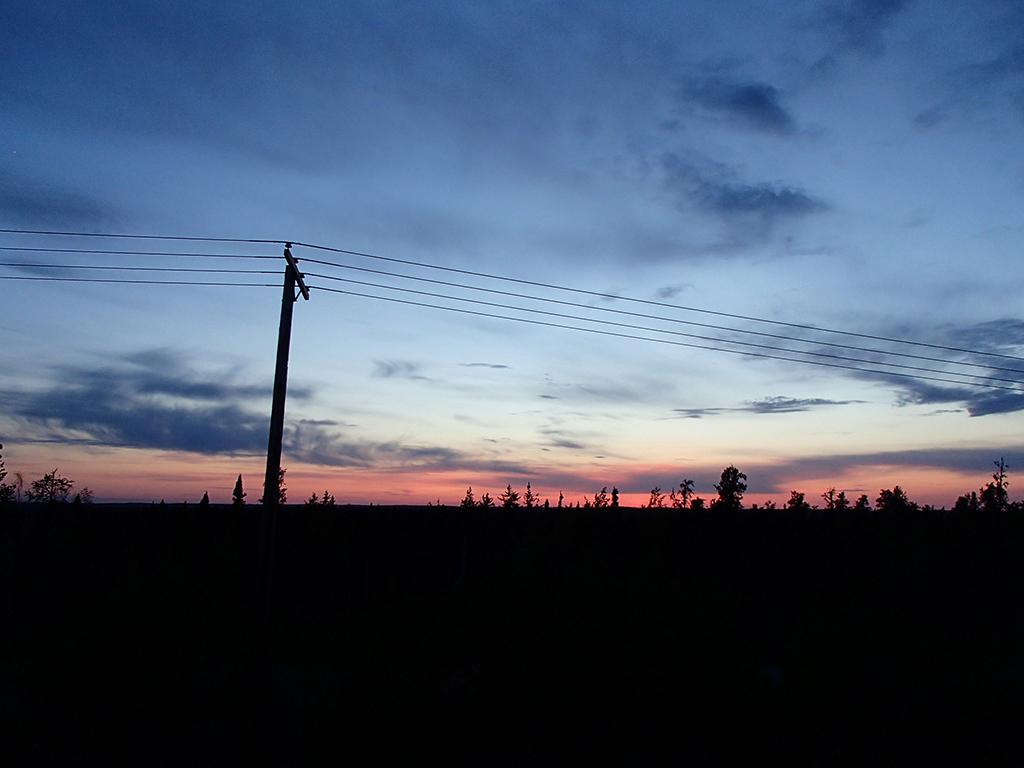It’s been just over one month since my return from a five-week placement at a boreal garden working with the Grow North Corporation in Leaf Rapids. As a participant in the University of Manitoba’s Service-Learning Experience, I learned about some of the challenges faced by this northern community and solutions that they have developed in response to their local food struggles.
This buildup of problems over the years in Leaf Rapids has severely impacted the residents and their opportunities for food security, food sustainability, and food sovereignty.
Upon returning to Winnipeg, it was a ridiculously smooth transition getting back into the regular pace of my pre-departure life.
Even though things at home remained basically the same, I have personally been changed by my time spent working with the community on the garden in the old mining town. The most obvious transformation is that I’ve become a city girl gone bush.
My perspective has changed on how to spend my free time. Now, I love spending time in nature. I’ve even been begun planning some camping trips with my friends, which is something I never would have considered before my trip. A newfound love for gardening has also been uncovered. Spending time with plants is extremely relaxing for me.
Besides connecting me with my love for the outdoors, it has changed my perspective further. Prior to this service learning experience, community development was not on my radar as an interest.
Before, I believed people should be generally friendly to everyone they meet, but the interaction stopped there. I believed that the only ones who truly wished to understand someone – their perspective – were the ones who were already closest to them.
To me, one’s closest friends were an exclusive group of people who were granted this special status because of an extraordinary bond – one that they earned. Now, that particular group has become more open.
Don’t get me wrong: each one of my oldest, closest friends remains special to me. Each bond is unique and could never be substituted. But now, I am significantly more open to engaging with new people I meet and hearing their stories.
The biggest thing I learned about community development in Leaf Rapids was that once I cared about a place and its people, everything changed for me. A deep passion for others was tapped.
Typically when I saw my closest friends get hurt or mistreated, it made me furious. I would defend them. But I never knew that I could feel so upset and defensive about injustices against someone I had met fairly recently – let alone an entire community.
Building these irreplaceable bonds has led me to retain a deep attachment to Leaf Rapids. I continue to wonder about the people there and the challenges they are still faced with. To understand food sustainability issues on a textbook level seems quite straightforward. However, the reality I witnessed in Leaf Rapids was much more complicated.
Food issues, and responses like boreal gardens to counter these problems, are part of an amazingly complex situation. Rooted in systemic issues, and intertwined with local and provincial matters in politics and cultural identity, these are just a few of the various factors contributing to the complexity.
I do not believe that I would have begun to understand the struggles faced by residents of Leaf Rapids, without having stayed there and learned about their stories. I have never felt so frustrated – with the government and the general situation at hand – before this experience. The answers to seemingly “straightforward” questions about food security, food sustainability, and food sovereignty are still perplexing to me.
I have come to realize that during my time there, I only scratched the surface of these major issues. On the last day of our trip, my new university friends and I realized this, as we were chasing our last northern sunset.
To address such issues regarding the consumption and production of food, I have learned that unique circumstances and particular challenges facing communities must be looked at.
My experience in Leaf Rapids has changed my life forever. I know that. My passions have shifted; my personality has changed. I am asking different questions, learning new things.
Personally, I believe it is for the better.
Since working on the boreal garden in Leaf Rapids, I have been fortunate enough to continue my learning by taking on the University of Manitoba Students’ Union’s campus garden programmer position. This way, I have had the opportunity to continue gardening, as well as sharing my knowledge and passion with fantastic volunteers and passersby.
Moving forward, I’m excited for the ways this experience will shape my future.
To other students who are considering participating in these types of service-learning trips: just go for it. I can almost guarantee that participants will leave with a lot more than expected, including a new perspective on their own life and the lives of others.
The University of Manitoba provides access to a variety of local and international service-learning programs through Student Life. These programs offer opportunities for students to participate in innovative approaches to education that integrate community service work with activities designed to develop skills for public engagement, critical thinking, and intercultural communication



